Click on images to enlarge
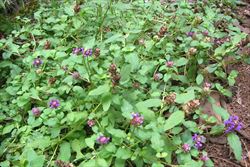
infestation (Photo: Forest and Kim Starr, USGS)
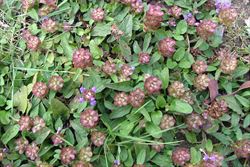
habit (Photo: Sheldon Navie)
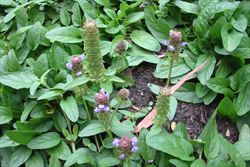
habit (Photo: Sheldon Navie)
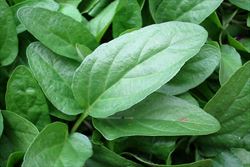
leaves (Photo: Sheldon Navie)
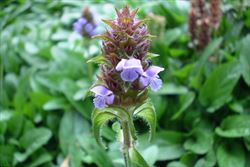
young flower cluster (Photo: Sheldon Navie)

close-up of flowers (Photo: Forest and Kim Starr, USGS)
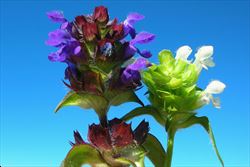
flower colour may vary from dark blue to rarely white (Photo: Forest and Kim Starr, USGS)
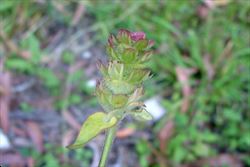
immature fruit (Photo: Sheldon Navie)
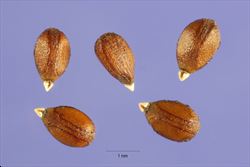
close-up of seeds (Photo: Steve Hurst at USDA PLANTS Database)
Scientific Name
Prunella vulgaris L.
Synonyms
Brunella vulgaris L.
Family
Labiatae (South Australia)Lamiaceae (Queensland, New South Wales, the ACT, Victoria, Tasmania, Western Australia and the Northern Territory)
Common Names
allheal, blue curls, blue Lucy, brownwort, brunella, carpenters weed, carpenter-weed, carpenter's-weed, common self heal, common selfheal, dragonhead, heal all, heal-all, healall, heart of the earth, Hercules woundwart, hook-heal, hookweed, prunella, self heal, self-heal, selfheal, sicklewort, slough-heal, thimble-flower, thimbleweed, wild sage
Origin
The exact native range of this species is obscure, but it is thought to be native to north-western Africa (i.e. Algeria, Morocco and Tunisia), the Azores, the Madeira Islands, the Canary Islands, Europe, western and northern Asia (i.e. Afghanistan, Cyprus, Iran, Iraq, Lebanon, Syria, Turkey, Armenia, Azerbaijan, Georgia, Russia, Kazakhstan, Kyrgyzstan, Tajikistan, Turkmenistan, Uzbekistan, Mongolia and China), eastern Asia (i.e. Japan, Korea and Taiwan), the Indian Sub-continent (i.e. Bhutan, India, Nepal and Pakistan) and North America (i.e. Alaska, Canada and the USA).
Naturalised Distribution
Widely naturalised in southern ans eastern Australia (i.e. in south-eastern Queensland, eastern and southern New South Wales, the ACT, Victoria, Tasmania, south-eastern South Australia, and the coastal districts of south-western Western Australia). Also naturalised on Lord Howe Island.
Notes
Self-heal (Prunella vulgaris) has escaped cultivaiton as a garden plant (i.e. ornamental), and has become naturalised in riparian areas, pastures, open woodlands, disturbed sites, waste areas and along roadsides. It is regarded as an environmental weed in Victoria and Western Australia.

